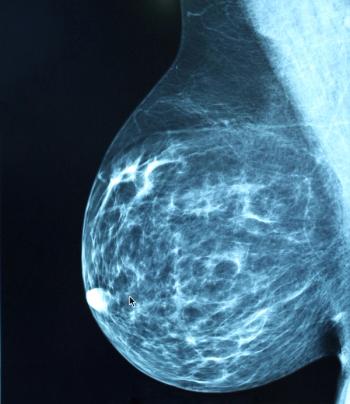
Oncology NEWS International
- Oncology NEWS International Vol 8 No 4
- Volume 8
- Issue 4
HHS Wants Health Warning Labels Placed on Cigars
WASHINGTON-Cigars should carry health warning labels similar to those on cigarettes and other tobacco products, the inspector general (IG) of the Department of Health and Human Services (HHS) has concluded. Inspector General June Gibbs Brown also urged the federal government to develop a public awareness campaign aimed specifically at explaining the adverse health effects of cigar smoking.
WASHINGTONCigars should carry health warning labels similar to those on cigarettes and other tobacco products, the inspector general (IG) of the Department of Health and Human Services (HHS) has concluded. Inspector General June Gibbs Brown also urged the federal government to develop a public awareness campaign aimed specifically at explaining the adverse health effects of cigar smoking.
The recommendations came with the release of two studies conducted by Ms. Browns office. One study examined the patterns of cigar use among teenagers and found that 19% acknowledged smoking at least one cigar in the previous 30 days. The second study found generally lax state enforcement of laws governing the sale of cigars to minors.
These findings are of profound concern and require our immediate action to inform the public about the health risks associated with cigar smoking, Ms. Brown said. There is a great need for additional research on cigars, including prevalence, patterns of use, developmental effects, the addictive potential of cigars, and blunting. In teen talk, a blunt is a cigar that has had some of its core tobacco removed and replaced with marijuana (see box ).
A Disturbing Trend
One particularly disturbing trend noted in the HHS study of students cigar use is the practice of blunting or adding marijuana to cigars.
The students reported that blunting is common at weekend parties, and urban students described sometimes daily use of the mixture among their peers.
Using cigars as a vehicle for smoking marijuana is increasingly popular with teens because cigars reportedly result in a better high, improve the flavor of marijuana, and burn more slowly than cigarette paper, the report said.
The call for warning labels on cigars won strong endorsement from Surgeon General David Satcher, MD. We should require the same sort of warning labels on cigars that we already require on packages of cigarettes and spit tobacco, he said. The absence of such a warning on cigars could lead consumers to erroneously conclude that cigars do not carry health risks.
Currently, only cigars sold in California are required to carry a warning label. It states that cigars contain and produce chemicals known to the state of California to cause cancer and birth defects and other reproductive harm. The warning, however, appears only on cigar boxes and packages and not on the wrappers of individual cigars.
The IGs office carried out the two studies at the request of the Office on Smoking and Health at the Centers for Disease Control and Prevention (CDC). The request resulted, in part, from the release 1 year ago of a report by the National Cancer Institute (NCI) called Cigars: Health Effects and Trends. That monograph concluded that cigar smokers face substantial health risks because, although they inhale less smoke, the smoke they inhale contains greater concentrations of toxic chemicals than does cigarette smoke.
According to the NCI, smoking a large cigar emits up to 20 times more ammonia, 5 to 10 times more cadmium and methyl-ethylnitrosamine, and up to 90 times more highly carcinogenic tobacco-specific nitrosamines than smoking a cigarette.
Usage data is far less well established for cigars than it is for cigarettes. The HHS, for example, only recently began to look at cigar use among young people. Both CDC and the Substance Abuse and Mental Health Services Administration (SAMHSA) added questions about youth cigar smoking to their annual surveys only in 1997.
Using different methodologies, SAMHSA estimates that 5% of teenagers have smoked cigars while the CDCs data suggest that 22% of teens have smoked a cigar in the past 30 days.
In one of its studies, the IG office convened 18 focus groups consisting of 227 young males and females, both cigar users and nonsmokers, to explore the patterns of cigar use among the participants and their peers. Thirteen of the groups were made up of high school students; four used junior high students; and one consisted solely of college students.
Of these students, 54% said they had smoked a cigar sometime in their life. Not only did 19% acknowledge smoking cigars in the month prior to their focus session, half of these said they expected to smoke cigars 5 years in the future in spite of their awareness of the dangers of smoking. Among the 82 students who said they had smoked a cigar in the past 12 months, 60% reported they also smoked cigarettes, and 16% said they had used snuff or chewable tobacco.
Forty percent of the focus group participants said that cigar smoking was gaining in popularity among their peers. In general, the students said they believed that cigars were socially more acceptable among teens and adults than cigarettes.
Teens most often buy cigars at gas stations or convenience stores, typically smoke them at parties (frequently along with drinking alcohol), and prefer manufactured to premium cigars because of their lower cost, sweeter flavors, and pleasant aromas, the students reported.
Report on Enforcement
In the second report on enforcement and regulation, the IGs office noted that all 50 states ban the sale of cigars to minors. However, it said, enforcement of these laws is uneven, it is generally given a lower priority than laws regulating the sales of cigarettes and chewable tobacco products, and half the states are unaware of how easy it is for teens to obtain cigars.
The enforcement report suggested that the growing popularity of cigars among teens stems in part from their ready availability. Cigars may be more easily available because they do not receive the same degree of regulation and oversight accorded other tobacco products.
The report also noted that cigars, except for little cigars that resemble cigarettes, are not subject to restrictions on television and radio advertising. The only federal oversight for cigars is a requirement that states conduct yearly, random, unannounced inspections of vendors to measure tobacco sales to minors.
Articles in this issue
almost 27 years ago
PDT Under Study for High-Grade Dysplasia in Barrett’s Esophagusalmost 27 years ago
Importance of Assessing, Treating Pain in the Cancer Patientalmost 27 years ago
Post Office Boosts Breast Cancer Stampalmost 27 years ago
RT After Mastectomy Reduces Recurrence Riskalmost 27 years ago
Who Smokes? A Profile of Smokers in the USalmost 27 years ago
Elderly May Do Well With Tamoxifen Without Surgeryalmost 27 years ago
Managing Respiratory Symptoms of Advanced Canceralmost 27 years ago
Results of Prevention Trials in Prostate, Colon, Breast Canceralmost 27 years ago
NABCO ‘Celebrates Life’ and Honors Breast Cancer Survivors at Luncheonalmost 27 years ago
Multimodal Screening Strategy for Ovarian CancerNewsletter
Stay up to date on recent advances in the multidisciplinary approach to cancer.



































